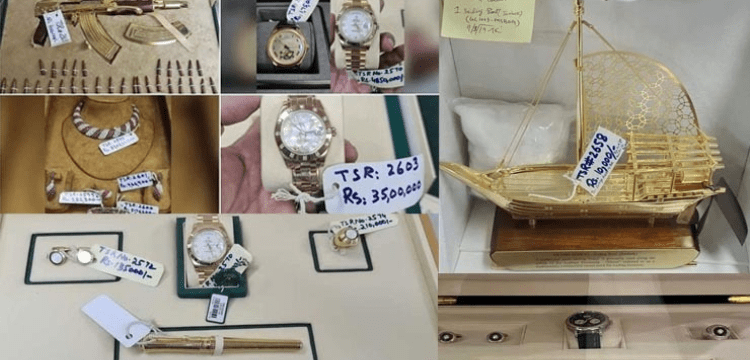[vc_row][vc_column][vc_column_text dp_text_size=”size-4″]LAHORE: During the Toshakhana controversy, renowned Pakistani clerics issued a fatwa (religious decree) condemning the current law that permits buying gifts from the state depository at bargain prices because they are not the private property of anyone but rather belong to the country as a trust.
Mufti Raghib Hussain Naeemi of Jamia Naeemia, Mufti Imran Hanfi, Mufti Nadeem Qamar, and Mufti Arif Hussain of Jamia Naeemia stated in the decree that the law for retaining gifts was “un-Islamic,” emphasising that Prophet Muhammad (PBUH) had strictly warned against keeping a gift given to a person holding a government position.
As a result, whether modest or large, gifts received by government officials are fundamentally the property of the state and should be deposited in the state treasury.
According to the law, the Cabinet Division obtains the value of the gifts from FBR officials and private appraisers.
Read More: A teacher couple returns to quake-hit zone to help kids.
“Gifts up to a value of Rs. 30,000/-(Rupees thirty thousand only) may be retained free of cost by the recipient. Gifts valued above Rs.30,000/- may be allowed to be retained by the recipient on payment of 50% of the value exceeding the basic exemption of Rs.30,000/-. This exemption shall however not be available in the case of antiques and gifts of intrinsic historical value. All such gifts shall be properly catalogued and displayed at the prominent buildings owned by the Government. Different gift articles given by a single dignitary to a functionary at one occasion will be treated as a single gift for the purpose of valuation,” reads the Toshakhana law.
The edict further stated that the donations should be used for public good. It stated, citing a Hadith, that the gifts should be deposited in the state treasury, and that acquiring the things at lesser costs from the official depository constituted a breach of Islamic precepts.
Researchers have encouraged the Supreme Court to have a role in amending the current statute.[/vc_column_text][/vc_column][/vc_row]











